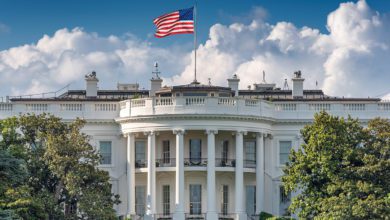
For years, IEEE-USA has been vocal in highlighting abuses in the H-1B visa program to the U.S. Congress. These abuses create unfairness for temporary non-immigrant workers and American workers.
On 15 November 2017, the House Judiciary Committee held a mark-up of HR 170, the Protect and Grow American Jobs Act. This legislation was introduced by Representative Darrell Issa on 03 January 2017. Under current law, H-1B dependent employers (15% or more of their employees are H-1B workers) can displace American workers as long as they pay the temporary non-immigrant workers at least $60,000 a year, or hire temporary non-immigrant workers with a master’s degree. As introduced, HR 170 proposed to eliminate the master’s degree exemption and raise the annual salary requirement to $100,000.
IEEE-USA staff worked diligently behind the scenes with House Judiciary Committee staff before the markup in an effort to improve Rep. Issa’s bill. As a result, a couple of significant provisions suggested by IEEE-USA staff were adopted in the markup.
Initially, HR 170 had no enforcement provisions. Specifically, IEEE-USA staff advocated for a dedicated funding source to be used for enforcement to root out those H-1B dependent employers who are bad actors and abuse the H-1B visa. As recommended by IEEE-USA staff in discussions with Congress, a dedicated funding source would be the most effective way to ensure keen enforcement. Simply calling for the Secretaries of Labor and Homeland Security to provide enforcement of H-1B dependent employers – without providing dedicated funding – would not be particularly helpful. The legislation would establish a petition fee, paid by the sponsoring companies, which will be deposited into a separate account within the U.S. Treasury’s general fund dedicated to funding effective enforcement.
Additionally, IEEE-USA staff advocated for greater transparency to help curtail H-1B visa misuse and recommended legislative language. This language – requiring the Secretaries of Labor and Homeland Security to jointly publish an annual report for the public that discloses each H-1B dependent employer, occupational classifications and required wages, and the worksites at which H-1B workers are employed or placed – is included in the bill. As the saying goes, “sunlight is said to be the best of disinfectants.” Having this detailed H-1B information annually updated, published and readily available to the general American public will help increase accountability and congressional oversight.
Unfortunately, the scope of HR 170 is limited to H-1B dependent companies. Thus, in its current form, the bill does not expressly prohibit all companies (i.e. – non-H-1B dependent companies) from using the H-1B visa to replace American workers with non-American workers who will have no clear path to American citizenship. IEEE-USA fought for an up-and-down vote on legislative language that would end all outsourcing and make it clear that no American should be replaced with temporary foreign workers. However, that language was not brought up in the committee for a vote. Additionally, the limited scope of HR 170 means that there is no available avenue for adding provisions regarding green cards, which IEEE-USA considers a better way to attract and permanently keep foreign-born talent without adversely affecting American workers or taking advantage of the foreign-born.
Despite these omissions, and although HR 170 is not a perfect bill, it does represent forward progress from the status quo toward addressing H-1B abuses.
The House Judiciary Committee unanimously approved the amended version of HR 170 by voice vote, and reported it to be sent to the full House.
As HR 170 proceeds to make its way through the legislative process, IEEE-USA will continue to work to protect American workers and temporary non-immigrant workers from H-1B abuse.






